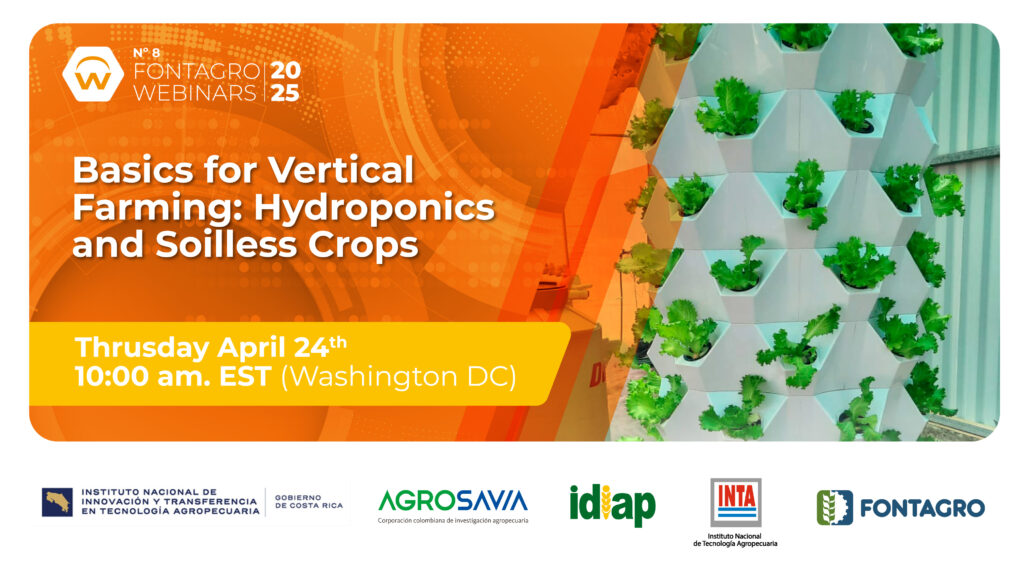
Global agricultural production is facing significant changes with the emergence of vertical farming, which presents various techniques to optimize yields in food production. These cultivation methods offer an ecological and responsible alternative to conventional techniques. The use of different vegetable production systems, such as hydroponics and others, thanks to their unique functionality and optimized management, opens innovative perspectives towards more sustainable agriculture and has a decisive impact on modern farming, sketching a promising future. The content of these presentations aims to raise awareness, innovate, and update the foundations of this revolution, its functionality, and its varied applications.
This webinar seeks to educate the audience about the foundations and scope of technologies related to food production in the absence of soil, while discovering how these production systems are redefining our relationship with the land and its vegetation.
Panelists:
– Dr. Alejandro Litvin: Environmental plant physiologist from the United States, specialized in understanding plant responses to stimuli and designing production systems and agronomic practices to achieve desired yield and traits in crops.
– Mg. Gabriel Ernesto Silva Acosta: Master researcher at the Colombian Corporation for Agricultural Research – AGROSAVIA, where he works on R&D projects, in plant breeding programs, and the development of alternative horticultural production systems under protected conditions.
– Ing. José Alfredo Czepulis Casares: Agronomist and researcher at the National Institute of Agricultural Technology (INTA – Argentina) with over 20 years of experience in the development of horticultural and fruit production systems.
– Dr. Javier Pitti: Senior researcher at the Agricultural Innovation Institute of Panama. Agronomist with a specialization in Agrochemistry and Soil Science, graduated from the Agrarian University of St. Petersburg, Russia, holds a Master’s in Agricultural Business Management, a Postgraduate in Higher Education, and has conducted doctoral studies in Agricultural Sciences and Biology of Organisms at the University of Angers, France.



***
About FONTAGRO
FONTAGRO was created 1998 with the purpose of promoting the increase of the competitiveness of the agri-food sector, ensuring the sustainable management of natural resources and the reduction of poverty in the region. The objective of FONTAGRO is to establish itself as a sustainable financing mechanism for the development of agricultural technology and innovation in Latin America and the Caribbean and Spain, and to establish a forum for the discussion of priority topics of technological innovation. The member countries are: Argentina, Bolivia, Chile, Colombia, Costa Rica, Ecuador, Spain, Honduras, Nicaragua, Panama, Paraguay, Peru, Dominican Republic, Uruguay and Venezuela. In the last 27 years 204 regional agricultural innovation platforms have been co-financed for an amount of US $ 150.7 million, which has reached 531 institutions and 35 countries worldwide.
